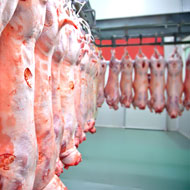Response to disquiet over comments on EU vets

Mr Gove was referring to the difference in the level of training between vets and non-vets who carry out other roles in the inspection and certification process.
The RCVS has defended Defra secretary Michael Gove, following disquiet in the profession over his comments on EU citizens working in the meat industry.
Mr Gove was criticised by the BVA last week after reportedly saying: “…Other countries have people who are skilled and valuable who fulfil a vet med function, but who are not trained to the same level.
“That is one of the reasons, for example, that in our abattoirs we often have people from other countries who do a great job, but who do not necessarily have the same level of qualification as full-dress vets here.”
BVA president John Fishwick said the comments were “incorrect and insulting to EU vets who are highly qualified for the roles they undertake”.
The RCVS said it understands from Defra that Mr Gove was referring to the difference in the level of training between veterinary surgeons and non-veterinary individuals who carry out other roles in the inspection and certification process, both now and in the future.
According to Defra, “the Secretary of State wasn’t saying, and doesn’t believe, that vets from the EU are less qualified than those from the UK.”
The college is currently repeating a survey of non-UK, EU-qualified veterinary surgeons and nurses, to improve understanding of the views and expectations of EU-qualified vets now that some aspects of the Brexit process have become clearer.



 The Federation of Independent Veterinary Practices (FIVP) has announced a third season of its podcast, Practice Matters.
The Federation of Independent Veterinary Practices (FIVP) has announced a third season of its podcast, Practice Matters.